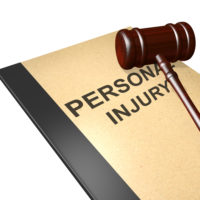What Is Florida’s Good Samaritan Law?

In the majority of situations, no one has an obligation to help any other person (though there are exceptions to this general rule). There are, however, situations where the average person may choose to help someone else, and in those situations, laws exist to protect them. If someone is injured and another person tries to help them by rendering medical aid, Florida’s “Good Samaritan” law protects them from civil immunity in most situations. “Most” does not mean “all,” though, so if you have been in a situation where the Good Samaritan Law may apply to you, it is crucial to understand its actual application.
A Duty Of Care Exists
For the average person, helping a person in distress can actually be a bit of a double-edged sword, because while there is no duty to help an injured person, a duty of reasonable care attaches to your actions once you decide to help. In other words, once you have decided to try and render medical aid to an injured person, there is an obligation for you to do so “gratuitously, and in good faith,” in the same way any other reasonable person would in a similar situation.
One specific corollary to Florida’s Good Samaritan statute is what is known as the 911 Good Samaritan Act. It deals specifically with drug overdoses, and holds that if a person, acting in good faith, attempts to obtain medical help for someone who is having an alcohol or drug overdose (or someone they believe is having an alcohol or drug overdose), they cannot then be prosecuted or otherwise penalized for that action. This can make the average person more likely to seek help, which in turn can save lives.
Establishing Liability
There are only two real ways in which a well-intentioned person can be held liable for any mistakes they make in medical care for an injured person. They are (1) if the Good Samaritan does not act in good faith, or fails to exercise the reasonable care required (in other words, if they are reckless or negligent); and (2) if the injured person “reasonably relies” on the Good Samaritan’s help and is further injured as a result. In short, if you make the injury worse (not just “not helping,” but specifically making the injury worse), you may be on the proverbial hook.
Medical professionals, by comparison, are subjected to slightly different standards – they can only be held liable in a Good Samaritan situation if they exhibit “reckless disregard” for the consequences of their actions – meaning that they should never do anything that their medical training and knowledge would move them to avoid (or that they should know to avoid). If a medical professional acts as a Good Samaritan and worsens the person’s injury through conduct they knew (or should have known) was dangerous, the consequences can be severe.
Call A Tampa Personal Injury Lawyer Today
The Florida legislature passed the Good Samaritan Act to try and encourage people to help each other, but it is not a shield against negligent or reckless conduct. If you have questions about the Good Samaritan Act, calling a Tampa personal injury attorney from the Rinaldo Law Group is a good way to try and get those questions answered. Contact our offices today for a free consultation.
Resource:
leg.state.fl.us/Statutes/index.cfm?App_mode=Display_Statute&URL=0700-0799/0768/Sections/0768.13.html
https://www.tampainjuryaccidentlaw.com/holding-a-funeral-home-accountable/












